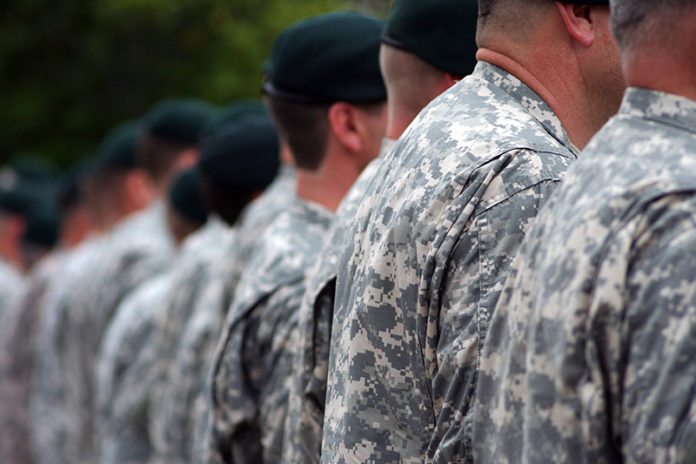Virtually every facet of civilian society in America has become openly and deeply politicized. It was only a matter of time before the curse of politicization hit the armed forces. The tipping point came in late January with a Department of Justice court filing in Connecticut, in which the Biden administration officially gave the green light for National Guard troops to unionize when on active state duty.
Is this a terrible idea? Yes. But is it surprising? Not really. Once Lloyd Austin, President Biden’s Secretary of Defense, commenced his service at the Pentagon in early 2021 by declaring that “extremism” in the ranks is a top priority for the Defense Department, the political die was cast.
The political football has now been passed from the Defense Secretary to Attorney General Merrick Garland, who gladly ran with the ball in the Connecticut case, announcing that the Department sees no problem with state-controlled National Guard personnel joining unions. (Currently, more than 400,000 men and women are subject to being called up for such state service.)
The repercussions of this decision already are being felt in Texas, where groups upset with Gov. Abbott’s use of the Texas National Guard to assist in protecting the state’s border with Mexico (“Operation Lone Star”), are moving to enlist Guard members in that state to meet and organize collectively. The Abbott administration is fighting the move, which almost certainly will result in contentious and lengthy legal wrangling.
The issue of unionizing National Guard units has been percolating quietly for several years, though not until the Justice Department’s January court filing in Connecticut has it reached the front burner.
For example, a relatively small number of civilian technicians serving in state guard units have been allowed to join unions, but their uniformed colleagues have not. The basis for this prohibition is a 1978 federal law prohibiting union activity among the ranks of federal military, including the National Guard.
This broad federal law prohibition, however, was attacked in the Connecticut case last fall by a number of National Guard members who were upset that they were not provided what they considered adequate protections against COVID when called on to assist in that state’s pandemic prevention activities. The American Federation of State, County and Municipal Employees (AFSCME — the country’s largest trade union of public employees, with a membership of more than 1.3 million) filed a complaint in federal court challenging the prohibition against unionization, aided by the Veterans Legal Services Clinic at Yale Law School.
The Justice Department sought to dismiss the guard members’ complaint, but agreed with and appeared to welcome AFSCME’s argument that the unionization prohibition in federal law did not apply to guard units under state command.
There actually was no necessity for Garland to stake out the position he did, but insofar as the administration of which he is a part has strongly opposed Operation Lone Star and the use of Texas guardsmen for its enforcement, the Connecticut lawsuit was a tailor-made opportunity for the administration to throw a monkey wrench into that endeavor, which it has.
Garland’s move may also have been viewed as a way to help reverse the longstanding trend of sagging union membership in the United States.
Regardless of the reasons for Garland’s gratuitous endorsement of unionizing state-controlled National Guard units, the idea is a direct challenge to the fundamental nature of military service, whether active, reserve or guard, all of which rely on strict discipline and unquestioned response to lawful orders. Having to run those orders by a union representative obviously runs counter to that good order and discipline of the military.
Down the road, the decision to endorse National Guard unionization will likely turn out to be a headache for liberals as much as for conservatives. Recent and continuing deployment of Guard units for myriad controversial purposes – from border protection to COVID relief, and to placing barbed wire around the U.S. Capitol complex — will provide opportunities to challenge such decisions by groups from across the ideological spectrum.
While Biden may relish the prospect of unionized National Guard units in the short term, it may not be long before he comes to regret the can of worms his administration has opened; as will his Oval Office successors.
































